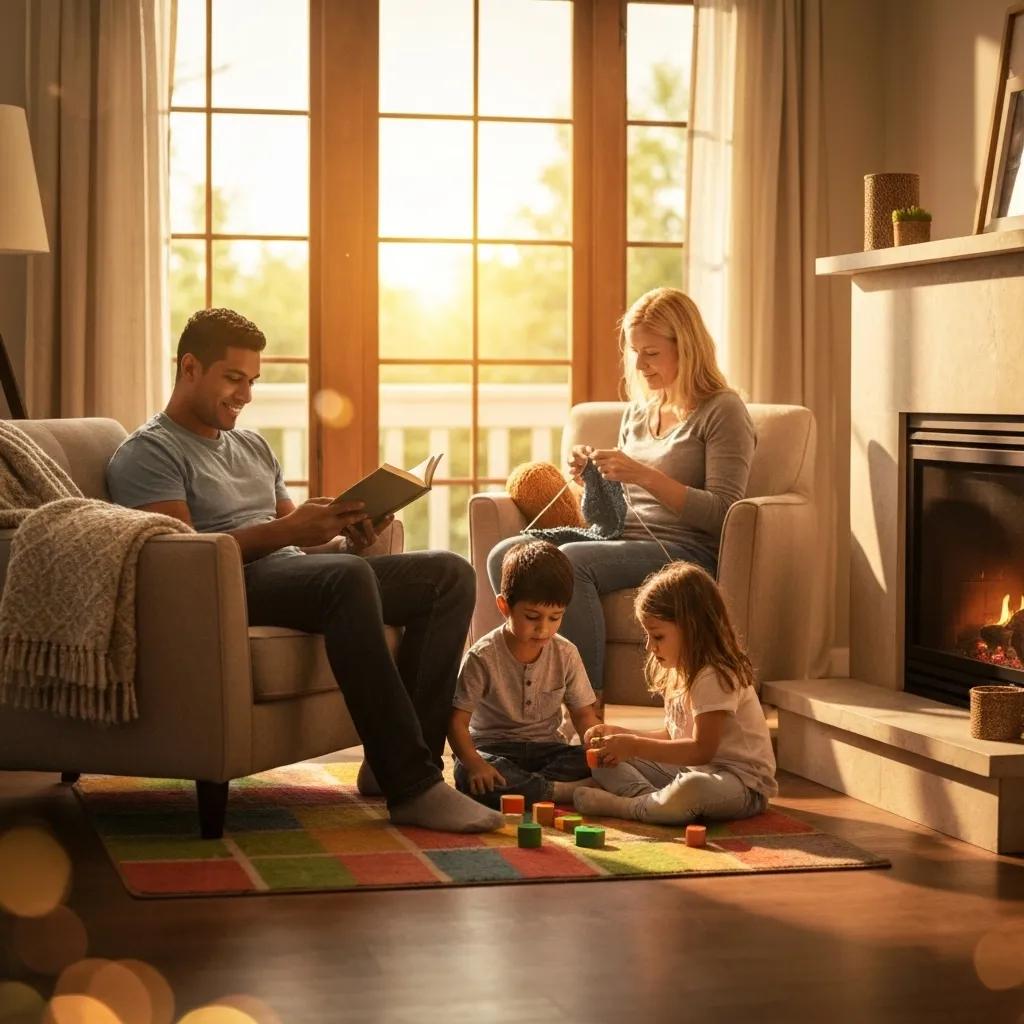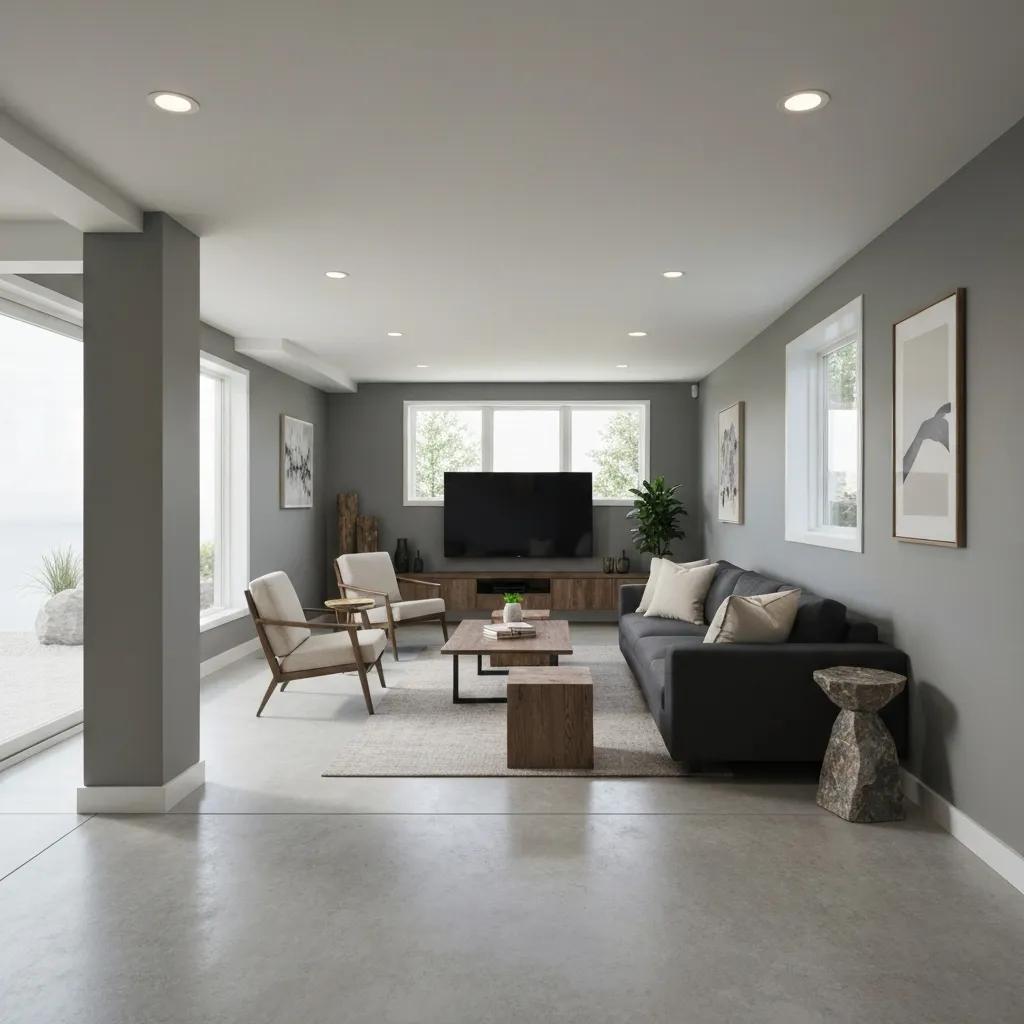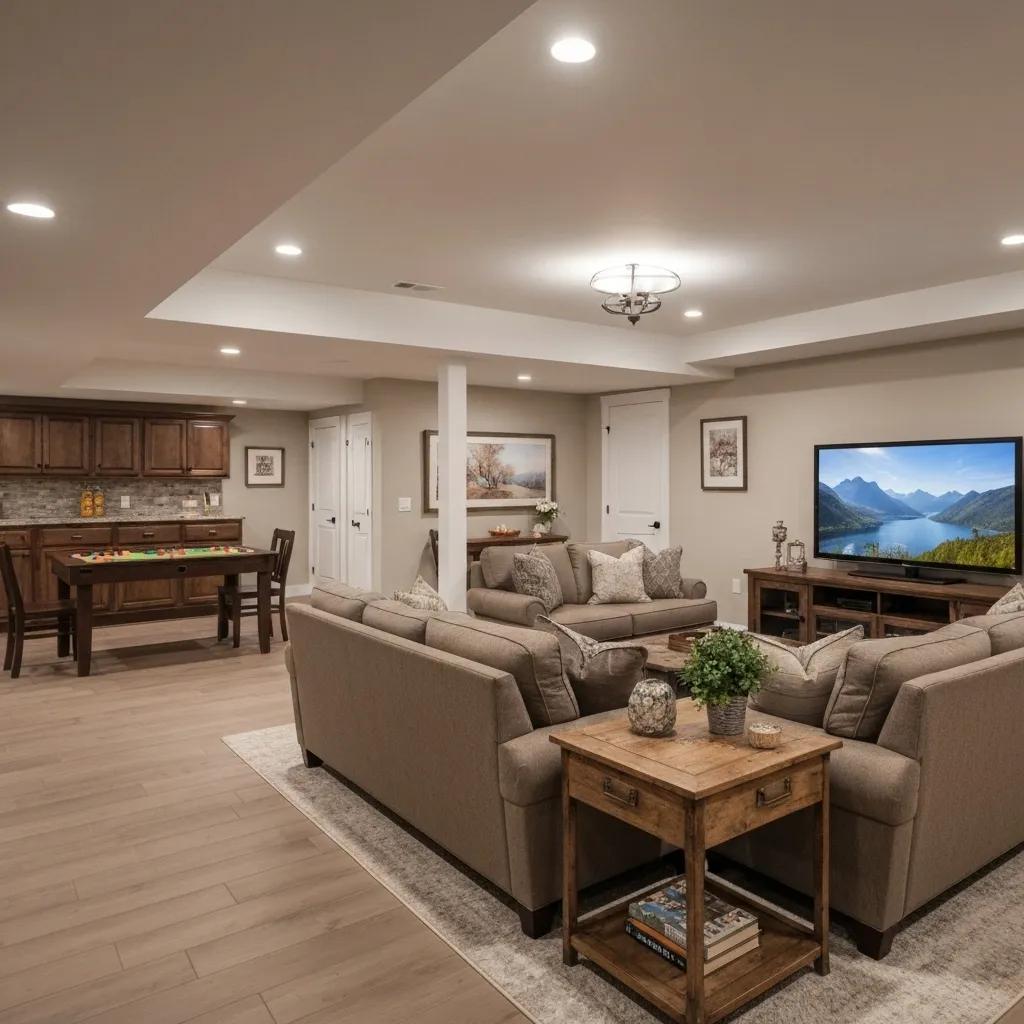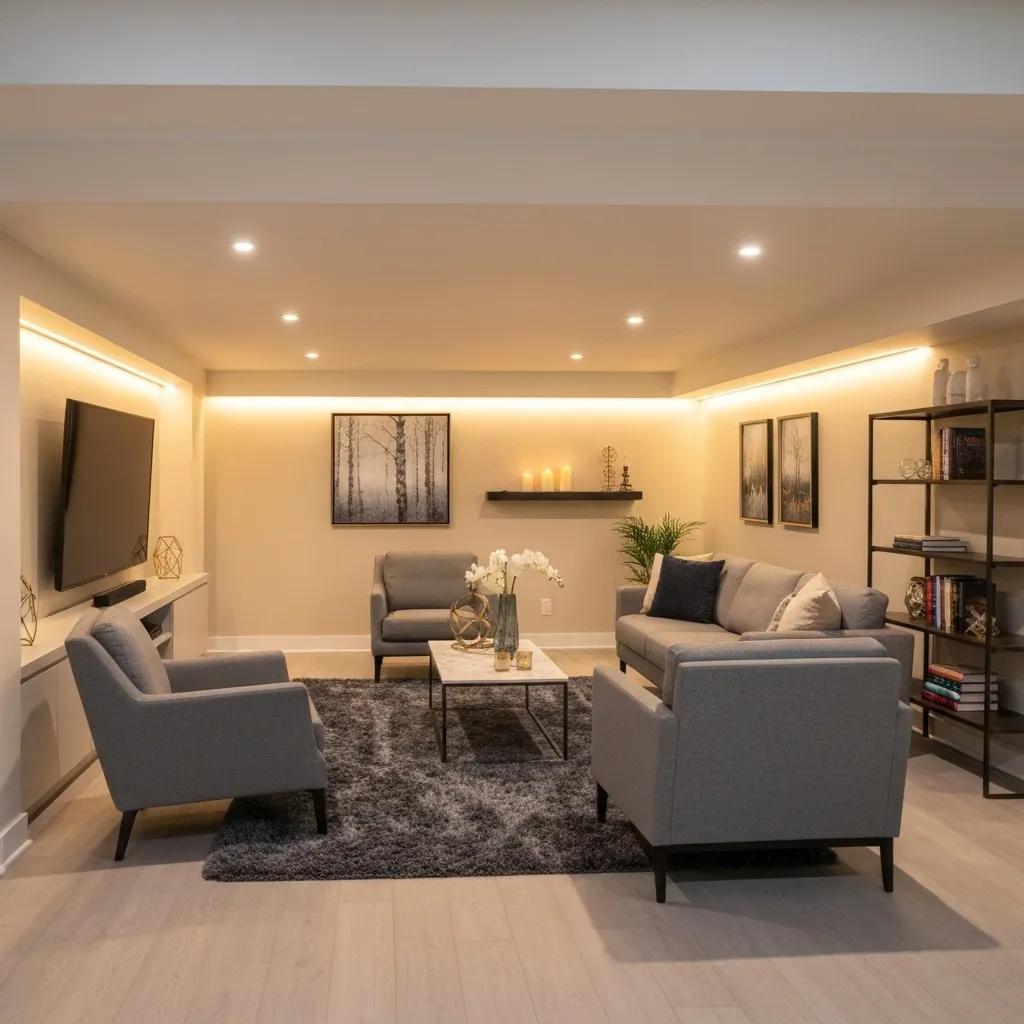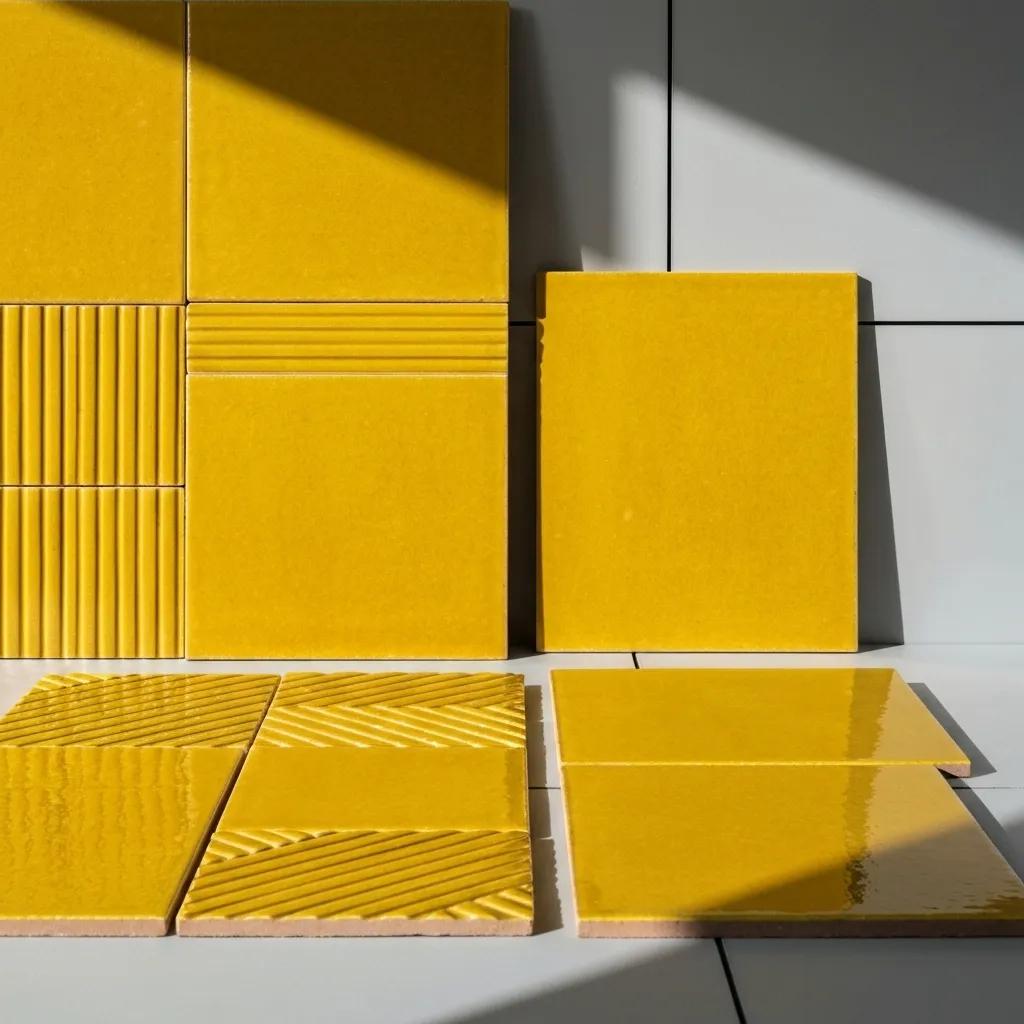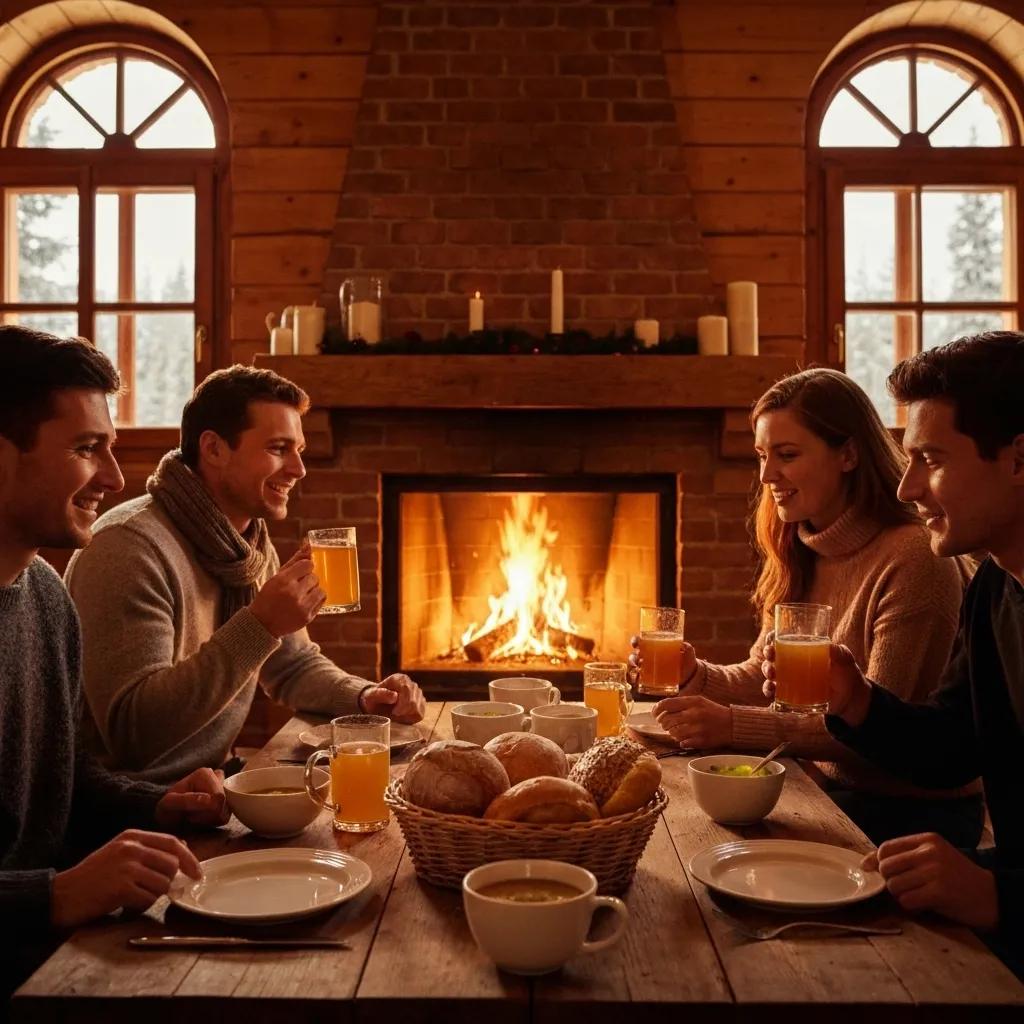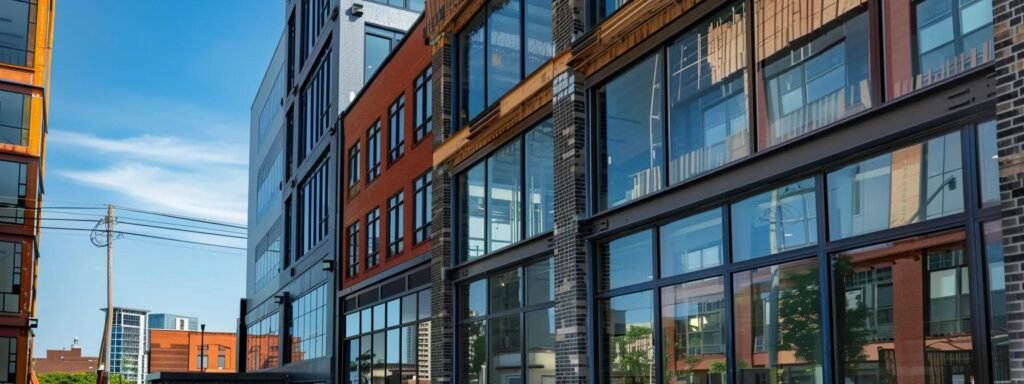
Table Of Contents:
- New Home Construction Trends in Des Moines
- What Are the Latest Trends in New Home Construction in Des Moines?
- Which Home Styles Are Most Popular in Des Moines Today?
- How Are Energy-Efficient Features Shaping New Homes?
- What Role Does Smart Home Technology Play in New Construction?
- How Does Sustainable Building Influence New Home Construction in Des Moines?
- Where Are the Best Neighborhoods for New Home Construction in Des Moines?
- What Is the Typical Construction Process for New Homes in Des Moines?
- How Can Homebuyers Finance New Home Construction in Des Moines?
- What Are the Current Cost Trends for New Home Construction in Des Moines?
- How Are Local Builders in Des Moines Adapting to Market Trends?
- Frequently Asked Questions
New Home Construction Trends in Des Moines
New home construction in Des Moines has experienced a significant transformation in recent years. Homebuyers and builders are increasingly shifting toward designs and building practices that emphasize modern aesthetics, sustainability, energy efficiency, and smart technology. The challenge for many prospective custom home owners is finding a construction process that combines modern conveniences with durability and long-term value. This article provides an overview of current trends in home construction—including popular styles, energy efficiency, smart technology, sustainable practices, financing options, cost trends, and how local builders are adapting—all tailored to the unique lifestyle and climate of Des Moines.
Homebuyers now often seek properties with bonus features such as spacious basements, modern bedrooms, and extended warranties for added peace of mind. New construction methods are especially popular among those who value custom home design while keeping an eye on budget. Advancements in mortgage options and construction loans have also simplified the building process. Local builders like Busy Builders LLC are incorporating eco-friendly materials and smart systems that improve indoor air quality and reduce energy costs. These trends reflect national developments in home-building while addressing local demands.
What Are the Latest Trends in New Home Construction in Des Moines?
New home construction in Des Moines is being redefined by several key trends. Modern homeowners expect more than just a place to live; they desire homes with contemporary designs, smart home integration, and energy-efficient features. One major trend is the popularity of open floor plans, which maximize natural light and create smooth transitions between indoor and outdoor spaces.
Builders now emphasize sustainable materials such as eco-friendly insulation, reclaimed wood, and low-VOC paints, reducing both the home’s carbon footprint and energy bills through features like solar panels, high-performance windows, and advanced HVAC systems. In addition, smart home technologies—including integrated security systems, automated lighting, and smart thermostats—are now standard, allowing control of home environments remotely. Custom home designs with flexible bonus spaces such as finished basements and home offices are increasingly in demand, with over 60% of buyers prioritizing energy-efficient and smart technology features.
Which Home Styles Are Most Popular in Des Moines Today?
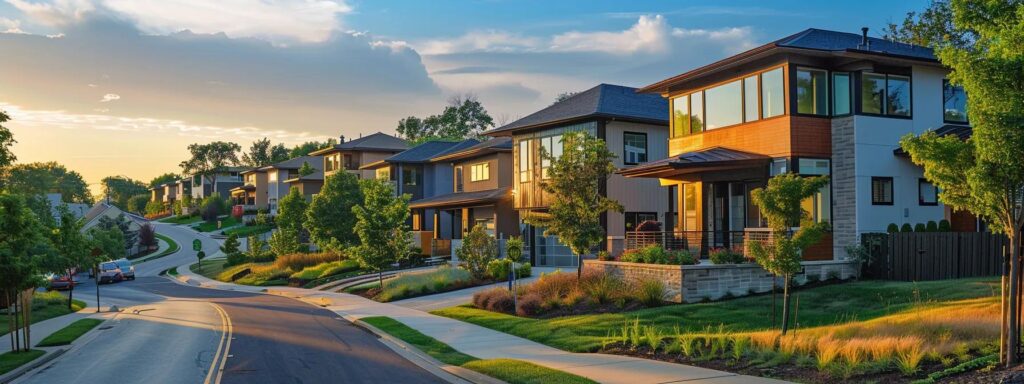
Des Moines home styles blend modern innovations with timeless appeal. Contemporary homes boast minimalist designs with expansive windows and open concepts that create a seamless indoor-outdoor flow. These designs are popular with younger buyers and families seeking spacious, energy-efficient layouts.
Traditional styles, including Craftsman and colonial revival homes, remain popular due to their charming exteriors, detailed woodwork, and inviting atmospheres. Many builders now combine classic exteriors with modern interiors—integrating open floor plans, state-of-the-art kitchens, and luxury master suites outfitted with smart home technology.
Transitional homes merge traditional warmth with modern efficiency, featuring neutral palettes, natural materials, and flexible layouts adaptable to evolving family needs. Additional popular trends include farmhouse-inspired designs with large kitchens and vaulted ceilings, as well as eco-friendly homes engineered with sustainable materials and energy-saving appliances.
Popular Home Style Features in Des Moines
- Contemporary Homes: Open floor plans, minimalist design, extensive glass use, and integrated smart systems.
- Traditional Homes: Detailed woodwork, decorative porches, classic brick exteriors paired with modern interiors.
- Transitional Homes: Blending traditional warmth with modern efficiency through flexible layouts.
- Farmhouse-Inspired Designs: Large kitchens, vaulted ceilings, and ample outdoor space.
- Eco-Friendly Designs: Use of sustainable materials, energy-efficient appliances, and green roofs.
How Are Energy-Efficient Features Shaping New Homes?
Energy efficiency plays a vital role in new home construction in Des Moines. Today’s energy-efficient homes are built with advanced materials like insulated concrete forms (ICFs) and high-performance windows to maintain optimal indoor temperatures and reduce reliance on heating and cooling systems.
A standout feature is the integration of solar panels, which harness ample local sunlight to generate renewable energy and boost property value. High-efficiency HVAC systems and smart thermostats further optimize energy use by adjusting indoor temperatures based on occupancy and weather conditions. Improved building ventilation and superior insulation—through double or triple-pane windows and eco-friendly materials—help maintain indoor air quality while lowering energy leakage.
Local builders also seek certifications like LEED and ENERGY STAR to verify a home’s energy performance, with data suggesting that such homes can reduce energy costs by up to 30%. Overall, energy efficiency not only cuts utility costs but also contributes to a healthier, more sustainable living environment.
What Role Does Smart Home Technology Play in New Construction?
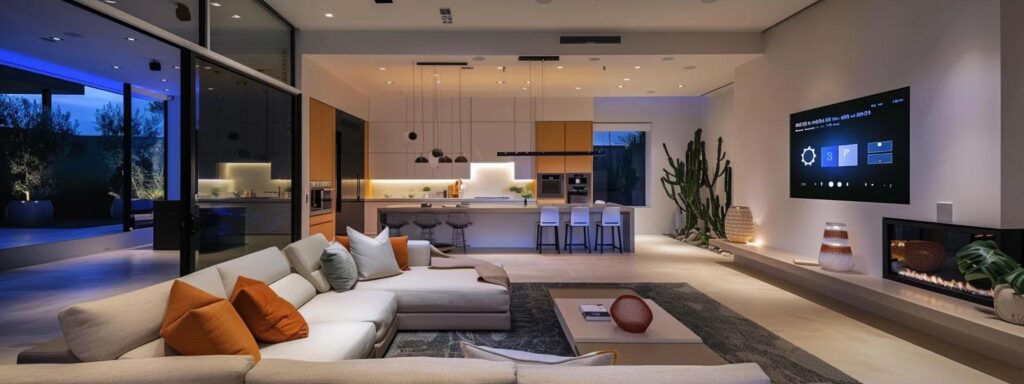
Smart home technology is an essential component of new construction in Des Moines. These systems enhance security, optimize energy management, streamline household tasks, and add convenience. Modern homes now feature automated lighting, climate control systems, and advanced security measures—including remote monitoring via smartphones.
Smart thermostats allow homeowners to tailor temperature settings based on daily schedules and weather conditions, minimizing energy wastage and reducing costs. Automated lighting adjusts using natural light levels, while integrated security systems with sensors and motion detectors provide real-time alerts, enhancing overall safety.
Voice-activated assistants and centralized control platforms further simplify daily routines by managing multiple functions—from entertainment systems to irrigation—through simple commands. In essence, smart home technology not only increases efficiency but also adds resale value and a futuristic appeal to custom homes.
How Does Sustainable Building Influence New Home Construction in Des Moines?
Sustainable building practices are increasingly influential in Des Moines. These practices focus on using renewable resources, reducing waste, and minimizing a home’s environmental footprint. A central element is the adoption of green building certifications like LEED and ENERGY STAR, which ensure homes meet strict criteria for energy efficiency, water conservation, and indoor air quality.
Homes built under sustainable practices often utilize reclaimed wood, recycled metal, and eco-friendly insulation to reduce environmental impact while ensuring durability and cost-effectiveness. Additionally, water-saving systems such as water recycling and efficient irrigation, as well as design features that maximize natural ventilation, help cut energy and water usage.
The benefits of sustainable building extend beyond the environment to include health improvements from low-VOC paints and non-toxic materials. For many buyers, these factors increase property value and contribute to long-term savings, making sustainability a key trend in modern home construction.
What Are the Benefits of Energy-Efficient Homes in Des Moines?
Energy-efficient homes offer multiple benefits. They significantly reduce utility bills through advanced insulation, energy-efficient windows, and smart HVAC systems capable of cutting energy costs by around 30%. Beyond economic savings, these homes lower greenhouse gas emissions by reducing reliance on fossil fuels. They also promote better indoor air quality, which contributes to improved health and fewer respiratory issues.
Enhanced resale value is another benefit, as more buyers seek sustainable features. Local incentives and rebates further offset initial costs, making energy-efficient upgrades an attractive investment for homeowners.
Which Eco-Friendly Materials Are Commonly Used?
Builders in Des Moines favor eco-friendly materials that balance durability with environmental responsibility. Common choices include: – Reclaimed Wood: Salvaged from old buildings, it offers unique textures while reducing waste. – Recycled Metal: Reprocessed steel and aluminum provide strength with a lower energy footprint. – Low-VOC Paints: These alternatives improve indoor air quality by reducing emissions. – Cellulose Insulation: Made from recycled paper, it delivers excellent thermal performance. – Sustainable Concrete: Incorporates fly ash or slag to reduce CO₂ emissions.
These materials help achieve healthier indoor environments and lower energy consumption, enhancing both the marketability and sustainability of new homes.
How Do Green Building Certifications Impact New Homes?
Green building certifications significantly influence new home construction by setting high standards for energy efficiency, safety, and sustainability. Homes that meet these certifications enjoy lower operating costs, enhanced indoor comfort, and increased resale value. Buyers appreciate the assurance that comes with certifications like LEED and ENERGY STAR, leading to a growing market for green-certified homes. Additionally, local and state incentives tied to these certifications help offset some of the increased upfront costs, making sustainable construction a smart investment.
Where Are the Best Neighborhoods for New Home Construction in Des Moines?
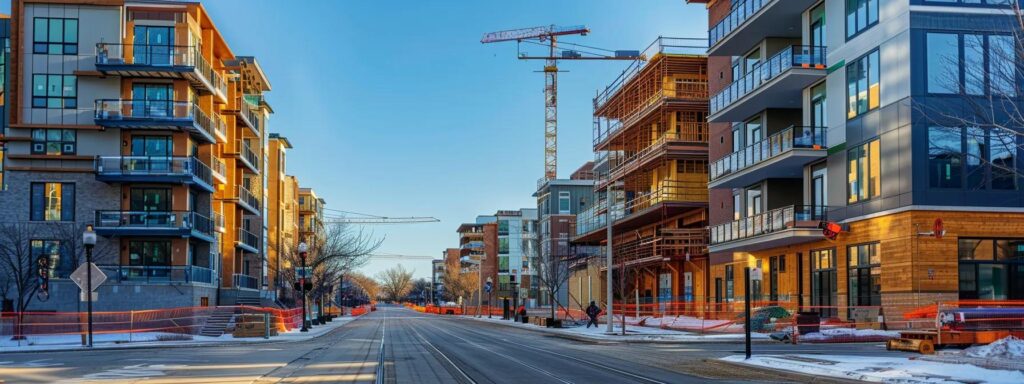
Des Moines offers a variety of neighborhoods ideal for new home construction, each with distinctive advantages. Key factors for homebuyers include proximity to amenities, quality schools, favorable zoning regulations, and community infrastructure.
What Neighborhoods Offer the Most New Construction Opportunities?
Popular neighborhoods include: – West Des Moines: Known for upscale developments, excellent schools, and modern amenities. – North Des Moines: Offers cultural centers and transit options in revitalized urban settings. – Beaverdale: Family-friendly with ample parks and community centers. – Urbandale and Johnston: These areas are experiencing rapid growth, appealing for their affordability and expanding infrastructures.
How Do Zoning Regulations Affect New Home Builds?
Des Moines’ strict zoning codes help maintain neighborhood character and ensure adequate amenities and green spaces. Recent adjustments to zoning laws have opened previously restricted areas for larger, custom-designed homes, allowing for varied architectural styles and densities.
What Amenities and Schools Support These Neighborhoods?
Quality amenities and schools further enhance property values. Many neighborhoods offer a mix of modern facilities, safe walkable streets, and community engagement, making them desirable for families and professionals alike.
Below is a summary table of top neighborhoods:
| Neighborhood | Construction Opportunity | Key Amenities | School Quality Rating | Zoning Benefits |
|---|---|---|---|---|
| West Des Moines | High | Shopping, parks, restaurants | 9/10 | Upscale zoning, green spaces |
| North Des Moines | Moderate to high | Cultural centers, transit | 8/10 | Mixed-use, revitalized areas |
| Beaverdale | Moderate | Family parks, community centers | 8/10 | Family-friendly zoning |
| Urbandale | High | Affordable, suburban amenities | 7/10 | Expanding residential zones |
| Johnston | High | New retail, modern developments | 7/10 | Relaxed zoning, future growth |
What Is the Typical Construction Process for New Homes in Des Moines?
The construction of new homes in Des Moines follows a structured process from design to handover. Collaboration among architects, builders, local authorities, and homeowners is key to ensuring quality and customer satisfaction.
What Are the Key Steps From Design to Handover?
- Planning and Design: Homeowners and architects finalize blueprints based on aesthetic and functional needs, followed by obtaining necessary permits.
- Site Preparation: Clearing, grading, and setting up essential utilities prepare the site for construction.
- Foundation and Framing: The foundation is poured and the home is framed, forming its basic structure.
- Systems Installation: Electrical, plumbing, and HVAC systems are installed, then insulation and drywall follow.
- Interior and Exterior Finishing: Flooring, cabinetry, and siding are completed, along with landscaping and final inspections.
- Handover: After quality checks and walkthroughs, homeowners move in.
How Long Does It Usually Take to Build a New Home?
Typically, construction takes between six to twelve months, depending on design complexity, weather, and permitting efficiency.
How Do Homeowners Work With Local Builders Like DMHB?
Homeowners maintain close communication with builders through regular site visits and feedback sessions. A detailed project checklist ensures progress aligns with timelines and budgets, helping turn the homeowner’s vision into reality. Home building
How Can Homebuyers Finance New Home Construction in Des Moines?
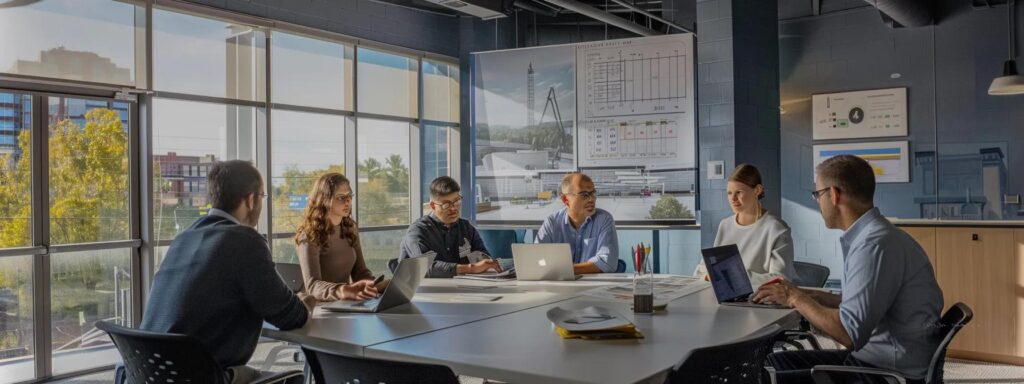
Financing home construction in Des Moines involves various mortgage options, construction loans, and insurance considerations, each designed to cover specific needs during the building process.
What Mortgage Options Are Available for New Builds?
Homebuyers can choose between fixed-rate mortgages, which offer stable payments, and adjustable-rate mortgages, which feature lower initial rates. Construction-to-permanent loans simplify the process by converting to a permanent mortgage after construction.
How Do Construction Loans Work?
These short-term loans release funds in stages tied to construction milestones, ensuring cash flow management and interest charged only on amounts used until project completion.
What Should Homeowners Know About Insurance for New Homes?
Builder’s risk insurance covers potential damages during construction, while standard homeowner’s insurance provides ongoing protection post-completion.
Below is a summary table of financing options:
| Financing Option | Key Feature | Typical Term | Benefit | Consideration |
|---|---|---|---|---|
| Fixed-Rate Mortgage | Constant interest rate | 15-30 years | Predictable payments | May have higher initial rates |
| Adjustable-Rate Mortgage | Lower initial rate | Variable | Reduced initial costs | Rates may increase over time |
| Construction Loan | Milestone-based funds | Short-term | Controlled cash flow | Requires careful management |
| Construction-to-Permanent | Converts post-build | Long-term | Streamlined process | More complex application |
| Builder’s Risk Insurance | Coverage during build | Construction period | Protects against damage | Separate policy required |
Financing also requires attention to credit, down payments, and available tax incentives, making custom home building a viable investment.
What Are the Current Cost Trends for New Home Construction in Des Moines?
Cost trends in new home construction are subject to market conditions, material prices, and labor availability. Homebuyers must consider these factors to budget wisely.
What Is the Average Cost Per Square Foot?
Costs in Des Moines typically range from $150 to $250 per square foot, with custom homes using premium features costing more, while standard builds are at the lower end.
How Do Material and Labor Costs Affect Budgets?
Fluctuations in material prices and labor markets can significantly impact overall costs. Builders often provide detailed breakdowns and may employ modular or prefabricated techniques to control costs.
What Are the Benefits of Custom Design vs. Standard Plans?
Custom designs, though pricier upfront, offer tailored layouts and exclusive features, increasing long-term value. Standard plans benefit from economies of scale and lower design fees, appealing to budget-conscious buyers.
Key factors affecting cost trends include rising material prices, labor market demands, customization premiums, energy efficiency investments, and innovative construction techniques.
How Are Local Builders in Des Moines Adapting to Market Trends?

Local builders are quickly adapting by embracing innovation, sustainability, and a customer-focused design. They integrate modern technologies, eco-friendly materials, and customizable options to meet evolving market demands.
What Makes Des Moines Home Builders Unique in Sustainable Practices?
Builders in the area leverage tools like 3D modeling and BIM to design energy-efficient homes. They incorporate renewable energy systems such as solar panels and geothermal heat pumps while prioritizing locally sourced materials to reduce transportation emissions.
How Do Builders Incorporate Customer Preferences in Design?
Customer input is integrated through design workshops and regular consultations. Builders offer customizable options—from finishes to layouts—and utilize digital project management tools to ensure transparency and timely delivery.
What Are Examples of Recent Successful Projects?
Recent projects include custom homes in West Des Moines featuring smart technology and sustainable materials that reduced energy bills by about 25%, and transitional homes in North Des Moines that combine modern design with traditional craftsmanship, earning high praise for style and functionality.
Frequently Asked Questions
Q: What are the key benefits of building a new home in Des Moines? A: New homes in Des Moines offer modern design, energy efficiency, and customization options with sustainable materials and smart technology, resulting in long-term savings and enhanced comfort.
Q: How do construction loans work for new home projects? A: Construction loans are disbursed in stages during construction, with interest charged only on the amounts used. Once completed, the loan typically converts to a conventional mortgage.
Q: What are the advantages of energy-efficient homes? A: Energy-efficient homes lower utility bills, reduce environmental impact, improve indoor comfort and air quality, and typically yield higher resale values.
Q: How is smart home technology integrated into new constructions? A: Smart systems integrate automated lighting, climate control, and security features managed via centralized home building platforms for remote control and efficiency.
Q: Which neighborhoods in Des Moines are most popular for new construction? A: Popular neighborhoods include West Des Moines, North Des Moines, Beaverdale, Urbandale, and Johnston, chosen for their access to amenities, quality schools, and favorable zoning.
Q: What financing options are available for new home construction? A: Options include fixed-rate and adjustable-rate mortgages, construction loans, and construction-to-permanent loans, along with builder’s risk insurance.
Q: How do green building certifications impact new home construction? A: Certifications like LEED and ENERGY STAR ensure high standards for energy efficiency and sustainability, lowering utility costs, boosting home values, and attracting eco-conscious buyers.

